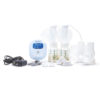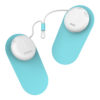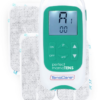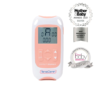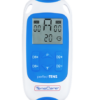How To Select the Right Prenatal Vitamins for Wherever You Are on Your Pregnancy Journey (MBC 2023 update)

How To Select the Right Prenatal Vitamins for Wherever You Are on Your Pregnancy Journey
When it comes to prenatal vitamins there are a lot of choices but despite what you may have heard, one prenatal vitamin does not suit every stage of the journey.
As an adult, you get most of your essential vitamins and minerals from the food you eat. But if you’re trying to conceive, already pregnant or nursing, there’s a lot more to consider when it comes to ensuring you have enough of those key nutrients. For example, regardless of whether you are trying to conceive or are already pregnant, folic acid is vital in the prevention of neural tube defects, and iron supports your body in producing sufficient blood supply, which supplies oxygen to your baby in the womb.
At several key stages throughout your pregnancy and postpartum, both you and your body will benefit from different vitamins and minerals.
Let’s look at what vitamins your body and growing baby will need at each stage.
- Pre-Conception:
Most of us have been taught that if you’re trying to conceive you should start taking a prenatal vitamin. While most prenatal vitamins usually include important supplements like folic acid and iron, many are insufficient when it comes to providing specific nutrients to support fertility and help prepare your body for conception. Folic acid comes in two main forms- Folic acid typically refers to the synthetic form while folate refers to the naturally derived and active form. Both forms are important in preventing birth defects such as neural tube defects. However, folic acid needs to be converted to folate, the active form, by your body. Some women may have a deficiency of the enzyme (Methylenetetrahydrofolate reductase) and as a result, may be unable to convert to the active form of folic acid. That’s why our prenatal vitamins use the l-methylfolate form. This form is the bioactive form of folate. This form is especially useful in women who have a deficiency in the enzyme and unable to metabolize folic acid.
For anyone trying to conceive, it’s important to build up nutritional stores in your body that can support your reproductive health and fertility. Key vitamins for when you’re trying to get pregnant include zinc, selenium, choline, inositol, iron, and vitamin D which contribute to normal fertility and the regulation of hormonal activity. You will also want to choose a vitamin that includes antioxidants such as beta-carotene, E, and C, as this help with processes like ovulation, oocyte maturation, implantation, and embryogenesis.
Studies have shown that vitamin B helps support and enhance fertility. B12 can help increase the chance of ovulation and B6 has a role in implantation and early placental development. - First-Trimester:
Once you’re pregnant you may think it’s time to just grab any prenatal vitamin off the shelf and stick with it until birth. But just like the preconception stage, your body and your growing fetus, require different amounts of vitamins and minerals to support healthy development. You will still need a supplement that includes zinc, selenium, thiamine, inositol, iron, and vitamins A (as beta-carotene), B, D, C and E to support your own body and provide the best support in this early and important stage of your baby’s development.
The first trimester of pregnancy also tends to bring along nausea and other uncomfortable side effects as your body adjusts to hormonal changes. A vitamin that includes ginger and B6 can help reduce morning sickness and nausea. You will also want to ensure your supplement includes iron but not enough to increase your likelihood of morning sickness and constipation. You will need more iron further along in the pregnancy but at this stage around 14mg is sufficient.
At this stage, you will also want a supplement that includes a high amount of folate (800mg) to prevent neural tube defects and support healthy development. - Second Trimester:
From weeks 13-26, your baby is going through key developmental milestones including bone and lung development and hearing. At this stage, in addition to key nutrients such as zinc, selenium, magnesium, copper and vitamin D, increasing your iron intake (17mg) is important to support increased blood production. To support their growing skeletal system, there is also a greater need for calcium (220 mg).
You’ll also want to ensure your prenatal vitamin includes antioxidants such as vitamins A, E, and C. These neutralize free radicals and are critical for the formation of many different systems.
Note: When it comes to vitamin A, we recommend choosing a prenatal vitamin that includes beta-carotene as your body will only create vitamin A from beta-carotene if needed, so there’s no risk of vitamin A overdose.
- Third Trimester:
In the final trimester of your pregnancy, your baby is growing, growing, growing! To support your baby’s huge growth spurt, you will want to make sure you’re continuing to get sufficient doses of important nutrients including calcium (240 mg), iron (30 mg), vitamin B, C, D, and E. These will help to support your vitality and keep you feeling nourished.
As your baby begins to rapidly gain weight, blood flow to your womb increases significantly. Iron and calcium continue to play a key role in healthy development. At this stage, your body will benefit from the addition of vitamin K to support proper blood clot formation and chromium to support blood sugar metabolism.
As many people experience indigestion at this stage in pregnancy, adding peppermint to your diet or supplement is also beneficial. Red Raspberry leaf is also beneficial in preparing your body for birth. - Post-Partum & Nursing:
Now that you’ve had your baby you might think you no longer need to keep taking prenatal vitamins, but the truth is, at this point your body is working hard to recover from labour and delivery.
At the same time, if you’re breastfeeding, you are literally giving your energy and nutrients to your baby to produce sufficient milk and nourishment for your newborn. Typically, if you’re breastfeeding, you will need to consume an extra 500 calories per day to meet your body’s energy requirements. You also continue to need vitamins and minerals to support and replenish your own body as you continue to supply nourishment and care for your newborn.
In the post-partum and nursing stage, it’s recommended that you consume a daily amount of iodine to support thyroid function. The recommended amount is 25mg. Vitamin A (as beta-carotene) is a potent antioxidant and highly recommended for both you and your baby, in addition to Vitamin K, which supports blood clot formation.
When selecting a prenatal vitamin, look for a quality supplement that will support you wherever you are in your pregnancy journey. Avoid products containing retinol, which could result in vitamin A overdose, and products with added filler, artificial colours or flavours, or allergens like lactose or wheat.
At Mama Bear Club, we recommend Prenatal Ease Vitamins which have been developed by medical experts to provide optimized nutrition at every stage before, during and after pregnancy. Prenatal Ease is also vegetarian (except the Omega DHA which is sourced from fish), gluten-free, lactose-free, and cruelty-free.
For more information on prenatal vitamins, check out this article from MayoClinic.org. Health Canada also has provided a Healthy Pregnancy Guide here.

